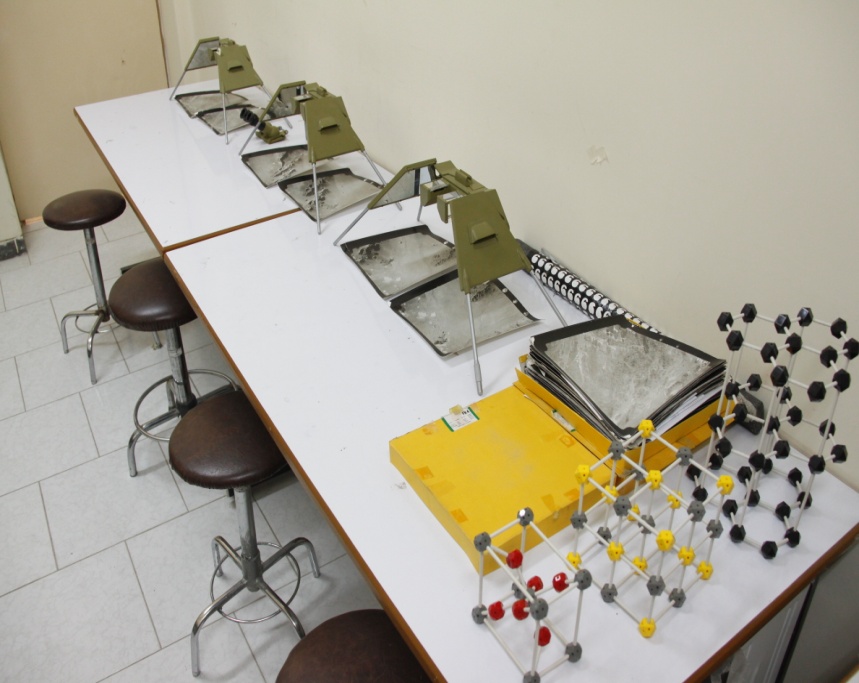Cartography Laboratory
Cartography involves the science of mapping. As it is impractical to represent the Earth’s surface at full scale on a map, various features and phenomena must be scaled down according to established cartographic principles. This ensures that users can interpret the scaled representations and their technical specifications accurately. The Cartography Laboratory is dedicated to training in cartography and photo geography, where students learn to work with aerial photographs and prepare geological maps.
Mineralogheraphy and Mineralogy Lab
Microscopic analysis of materials such as minerals, rocks, processed products, synthetic materials, and alloys remains a cornerstone of classical and essential methods in optical microscopy (transmitted and reflected light). This technique enables the non-destructive identification of solid materials (crystalline or amorphous) with relatively high precision. Equipped with advanced instrumentation, the Mineralography and Mineralogy Laboratory conducts studies in mineralogy, petrography, liberation degree analysis, identification of mineral or ore contamination with waste materials, and characterization of impurities in economically valuable samples. The laboratory also supports geological research, delivers educational courses in mineralogy, igneous, metamorphic, and sedimentary petrology, collaborates on research projects with academic and scientific institutions, and provides consultancy services in specialized fields.
Rock mechanics laboratory
Many national infrastructure projects, including dam construction, road building, and open-pit or underground mining, involve extensive rock mass operations. Determining the mechanical properties of rocks is critical to the design of such projects. As field tests are often costly and challenging, laboratory experiments remain the primary method for characterizing rock properties.
Mapping Laboratory
The Mapping Laboratory introduces students to field mapping techniques and the use of surveying equipment. It also covers mineral surveying, including practical training through visits to underground mines. This laboratory supports coursework in mineral mapping operations.
Mineral Processing Lab
The Mineral Processing Laboratory focuses on feasibility studies for mineral extraction using physical, chemical, and microbiological methods for industrial applications.
Equipment:
- Jaw Crusher
- Cone Crusher
- Pneumatic Ring Mill
- Ball Mill
- Pressure Filter
- Flotation Cells
- Solid-Liquid Extraction Unit
- Laboratory Sieve Shaker
- Jig
- Laboratory Digital Scale
- Magnetic Stirrer
- Hydrocyclone
Museum of Minerals and Gemstone
Iran is exceptionally rich in diverse minerals and gemstones. Studying their properties and applications fosters greater appreciation of their scientific and economic value. The establishment of permanent, specialized museums for minerals, gemstones, and decorative stones worldwide has heightened public awareness of these resources. The "Museum of Minerals and Gemstones" was established with the following objectives:
- Creating sustainable employment opportunities for gemstone enthusiasts in the province and nationwide
- Promoting entrepreneurship in the gemstone industry
- Advancing gemstone science for the identification of natural, synthetic, and substitute specimens
- Providing expert consultation on the identification, exploration, extraction, and optimal processing of gemstones in the province
- Issuing authenticated certificates for gemstones

